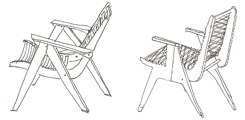We’re always interested to hear about Scots around the world. Here Rupert Wolfe Murray tells of his experiences in and love for Romania…
I first went to Eastern Europe in 1986, en-route to China, after graduating from Liverpool University. I’m glad I saw East Berlin, Poland, Hungary and Romania before Communism fell and a raw form of capitalism took over. I remember dim stations, bad food, friendly alcoholics on the train, dark streets, dodgy money changers, grim customs officers and people who were hungry for contact.
Years later I was drawn back to Eastern Europe. After experiencing the unpredictability, excitement and opportunities of countries emerging from Communism it was hard to come back to Scotland where life is settled, and – to a nomad like me – a bit predictable. I now live in Romania, the scruffiest and most chaotic country in Central Europe. I’ve always considered it the “India of Europe” in that it’s big, crowded, noisy, poor – and very beautiful. It’s also been a member of the European Union since 2007 and the London tabloids love to whip up fears of a gypsy invasion.
As in India the political life of Romania is in turmoil and corruption is rife but the people are friendly and very creative. They welcome foreign investors with open arms – it’s one of the biggest locations for call centres in Europe. I have always felt warmly accepted in this unusual country, a Latin speaking island in a region that is dominated by slavic speakers. Romanian is easy to learn and very similar to French, Italian, Spanish and Portuguese.
Just after Romania’s violent revolution in 1989 I worked as a journalist for Scotland on Sunday. I also hung out with a documentary filmmaker and we produced a documentary, After the Revolution. But once the revolution was over my news editors in Edinburgh told me ‘the public are no longer interested in Romanian politics. Get us some stories about AIDS babies or orphans’. Instead, I ended up working in a home for disabled children and getting into charity work, a calling that took me to Bosnia and Albania and then back to Edinburgh.
My volunteer experience proved useful in working up an impressive looking CV and, next thing I knew I was back in Romania advising the government about how to deal with their Romany and child welfare problems. I had become a highly paid EU consultant but, much as I tried, I found it impossible to do anything worthwhile within the dead hand of the EU – and Romanian – bureaucracy. The EU’s good intentions for improving Central and Eastern Europe have been strangled by a thicket of red tape and corruption.
Journalism is also a dead end and traditional newspapers are dying. The fee for an article from Romania has not changed in 20 years. Now I am working on one of the most satisfying jobs I have ever had: I am the European Representative for Castle Craig Hospital, a drug and alcohol clinic located in the Scottish Borders. I write about addiction issues in The Huffington Post and the media in Romania, Austria and other countries, building up partnerships with psychiatric clinics, and trying to encourage businesses to consider rehab clinics before sacking employees.
What’s satisfying about this work is that it is incredibly varied – last week I started making new partnerships in 12 new countries – it brings me home to Scotland on a regular basis but also gives me a reason to visit the most interesting parts of Europe. I also like the fact that I am working for a family, the McCann family, who run Castle Craig Hospital with passion, love and incredible attention to detail. I have come to the conclusion that this personal, family approach is what transforms a good project into a great one.



No comments!
There are no comments yet, but you can be first to comment this article.